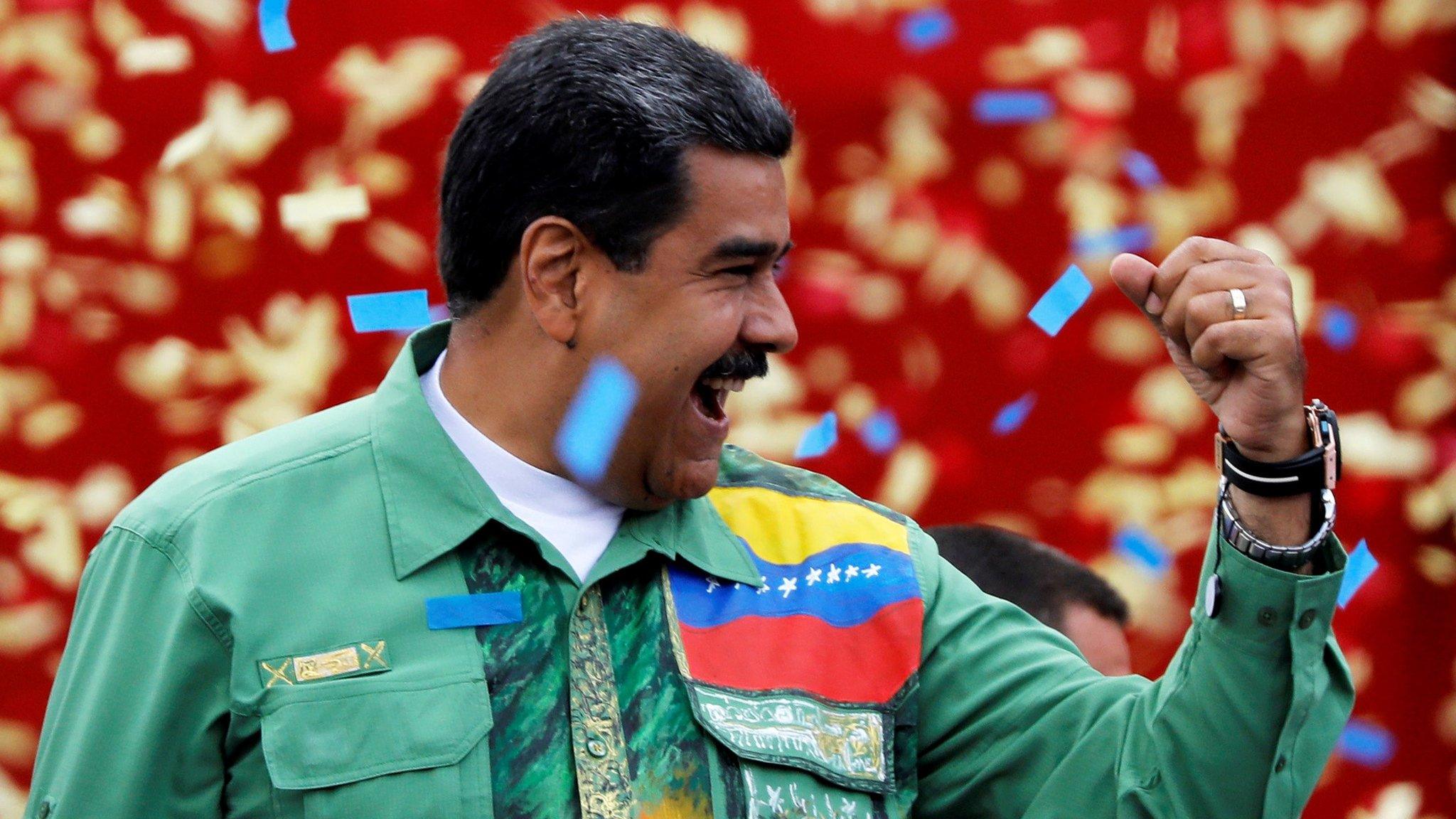Venezuela leader Maduro's decree powers divide opinion
- Published
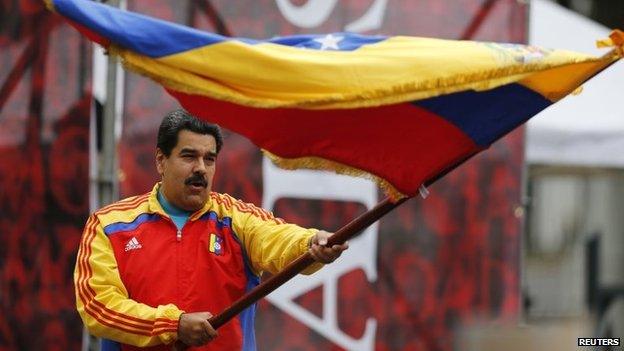
President Nicolas Maduro says the powers of decree will allow him to defend Venezuela
A law giving Venezuelan President Nicolas Maduro the power to temporarily govern by decree has been met with criticism by opposition politicians.
The law was passed on Sunday by the National Assembly, where Mr Maduro's party has a majority.
Critics of the president called it a power grab.
President Maduro asked for the extra powers to counter what he described as threats by the US government after the White House imposed fresh sanctions.
Heated debate
Pro- and anti-government politicians heatedly discussed the new powers for more than two hours before they were approved.
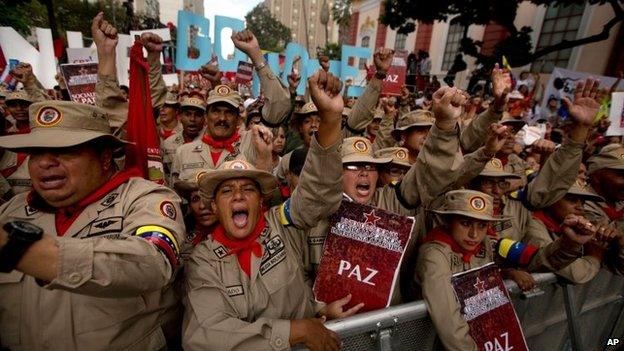
Members of the Bolivarian militia turned out in force to support President Maduro on Sunday
The new "Anti-imperialist Law for Peace" allows President Maduro to bypass the National Assembly and take action to "protect against the meddling by other nations in [Venezuela's] internal affairs as well as any warmongering or external or internal activity which breaches the peace".
It is not yet clear what decrees Mr Maduro plans to pass with his new powers.
Mr Maduro was given powers to govern by decree once before in November 2013 "to counter the economic war" the government said was being waged against it.
That time, Mr Maduro used the powers to put in force a number of laws to kick-start Venezuela's ailing economy, including anti-monopoly laws and the creation of special areas of economic development.

The 'Anti-imperialist Law for Peace'
Under the Venezuelan constitution, it allows the president to issue decrees
Needed the approval of three fifths of the National Assembly to be approved
Will be in force until 31 December 2015
Second time President Maduro has been given powers of decree
Previous such law allowed President Maduro to "counter economic threats"
Was in force from November 2013 to November 2014

Lawmaker Angel Medina of the opposition Justice First party said the real aim of the new law was "to persecute those who think differently from Maduro".
His opinion was echoed by Leomagno Flores of the Democratic Action party, who said it sought to weaken opposition parties.
"It's a law to cover up the government's weakness and to subjugate the Venezuelan people," he said.
Opposition politicians accuse the government of trying to silence them by jailing some of the fiercest opponents of the government.
The most vocal leader of the opposition, Leopoldo Lopez, has been in detention for more than a year on charges of inciting violence.
And last month, Caracas Mayor Antonio Ledezma was arrested on charges of plotting with the US to overthrow President Maduro.
'US interference'
President Maduro argued that the decree powers were key to defend the country following the announcement last week by US President Barack Obama of fresh sanctions against Venezuelan officials.
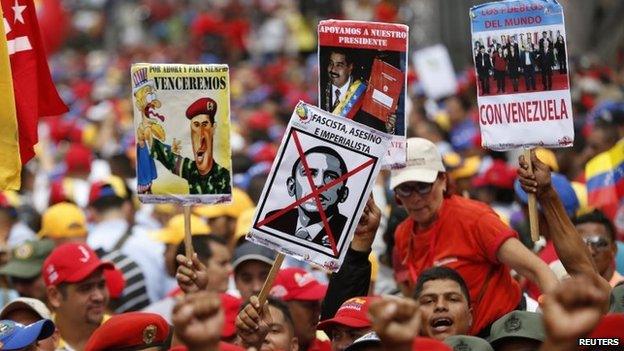
Tensions between the US and Venezuela have been on the rise for months
In his executive order, President Obama said that the situation in Venezuela - including "the erosion of human rights guarantees" - constitutes "an unusual and extraordinary threat to the national security and foreign policy of the United States".
The wording caused outrage with the Venezuelan government, prompting Foreign Minister Delcy Rodriguez to declare US officials were "one step away from declaring war on the entire world".
Politicians from the governing PSUV party also argued the decree powers were key to defend Venezuela from US interference.
Earle Herrera said Venezuelans would not bow to any empire and urged members of the National Assembly to back the decree powers or "back [Obama's] executive order".
William Farinas warned that "the US is coming after our oil, not our mangoes" and told his fellow National Assembly members that it was a day for decision making "not for cowards or hypocrites".
Mr Maduro's decree powers will come into force as soon as the new law is published in the official gazette.
- Published10 March 2015
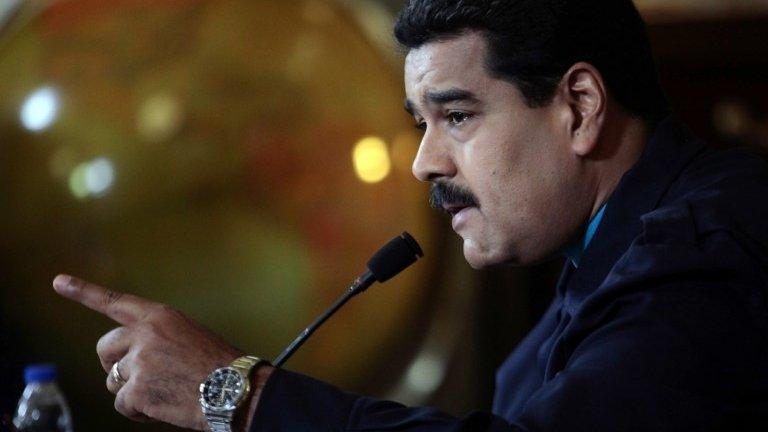
- Published5 March 2015
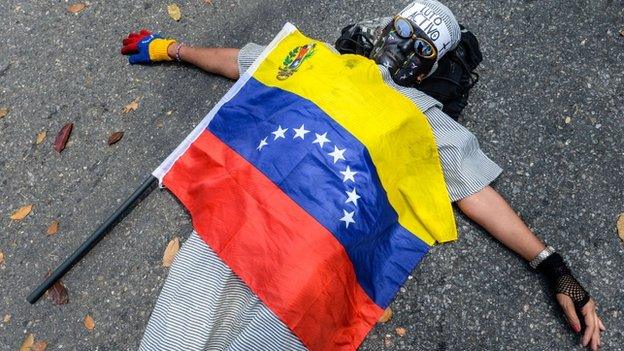
- Published28 January 2019
